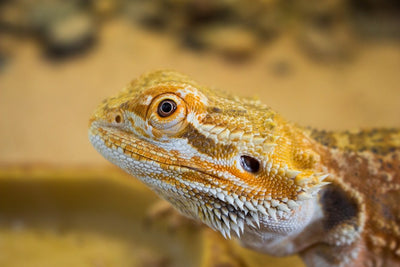Reptiles are remarkable creatures that come in various species. As pets, they require special attention and care to keep them healthy and happy. One of the most vital aspects of reptile care is to ensure they have the right healthcare supplies. But what are the key healthcare supplies that your reptile needs? In this comprehensive guide, we will discuss all the essential healthcare supplies that your reptile needs for optimal health.
1. Enclosure: Enclosures are essential to ensure that your reptile can enjoy a comfortable and safe environment. Different species of reptiles require different types of enclosures, depending on their size, habitat, and behavior. For instance, aquatic reptiles such as turtles and iguanas need a large water tank and basking spots, while land-based reptiles such as geckos perform better in a terrarium or glass aquarium that has various hiding spots. Make sure to choose an enclosure that meets your pet's needs. Also, keep it clean and free from harmful bacteria.
2. Lighting and Heating: Reptiles require adequate lighting and heating to maintain their body temperature and promote their natural behaviors such as basking, shedding, and hunting. Light sources like full-spectrum UVB bulbs simulate natural sunlight that helps with vitamin D production and calcium absorption in reptiles. Heating sources such as heat lamps, under-tank heaters, or ceramic heaters help regulate the temperature inside the enclosure and provide a good temperature gradient, so your pet can move around and find the perfect spot to warm up.
3. Humidity: Many species of reptiles require specific humidity levels to stay healthy and avoid dehydration. A hygrometer can help you monitor humidity levels inside the enclosure. Depending on the species, you may have to increase or decrease the humidity levels by misting the enclosure, using a humidifier, or adding a water bowl. Some reptiles may require dry habitats while others, such as snakes, may need high humidity levels to aid in shedding.
4. Substrate: Reptiles need a substrate that not only complements their natural habitat but also supports their health by preventing injuries, providing traction, and aiding in digestion. The substrate you choose should be free of dust, mold, and parasites, and easy to clean. There are various substrate options available, such as newspaper, paper towel, coconut fiber, sand, or reptile carpet. Research your pet reptile's species to determine the best substrate for them.
5. Supplements and Medications: Reptiles may require dietary supplements or medications to boost their immune system, prevent or treat diseases. Vitamin and mineral supplements can be added to their food to ensure they consume all the nutrients they need. Antibiotics and dewormers are prescribed to treat bacterial and parasitic infections, respectively. It is essential to consult a veterinarian before administering any supplements or medications to your pet reptile.
6. Food and Water Supplies - Reptiles have unique dietary requirements, and it's essential to provide them with a balanced diet. The type and amount of food your reptile needs depend on its species and life-stage. Some reptiles are herbivores, while others are carnivores, and some may require a mix of both. Water is equally important to keep your reptile hydrated, and the water dish should be large enough for your reptile to soak in.
7. Thermometers and Hygrometers - Consistent temperature and humidity levels are critical to maintaining your reptile's good health. A thermometer helps you ensure that the enclosure temperature is within the appropriate range for your pet. A hygrometer measures humidity levels, which are essential for your reptile's respiratory health and shedding.
Proper healthcare supplies are crucial to maintain your pet reptile's health and happiness. Ensure that you provide your reptile with an enclosure that matches its needs, heating and lighting sources to regulate temperatures, humidity levels that are optimal for their species, substrate that is comfortable and healthy for them, and supplements and medications that can keep them healthy and prevent diseases. If you're unsure about any aspect of reptile care, consult a veterinarian who specializes in reptile care to address any issues that may arise. With proper healthcare supplies, your pet reptile can thrive and enjoy a long, healthy life.






